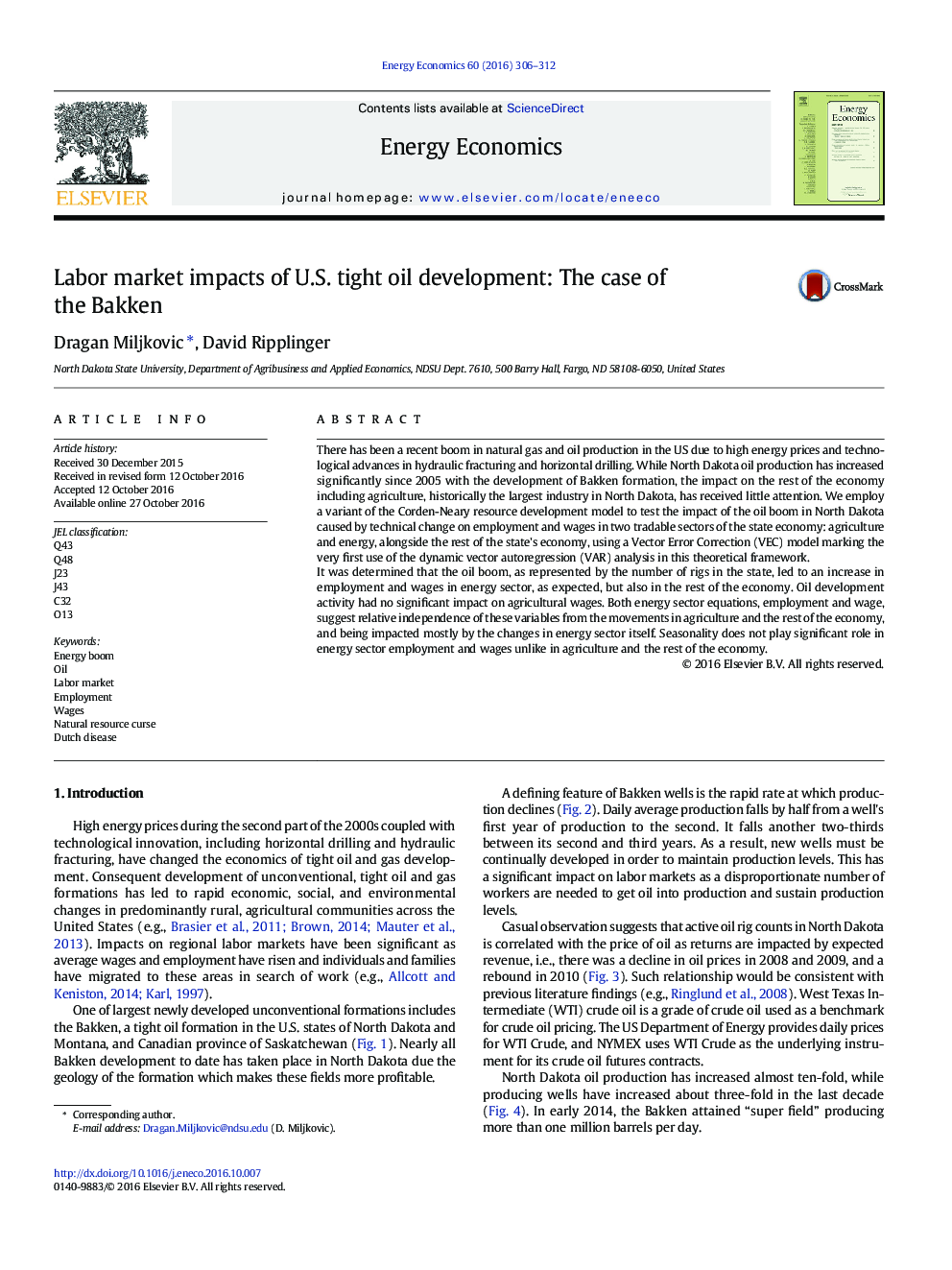| کد مقاله | کد نشریه | سال انتشار | مقاله انگلیسی | نسخه تمام متن |
|---|---|---|---|---|
| 5063902 | 1476704 | 2016 | 7 صفحه PDF | دانلود رایگان |

- Development of unconventional, tight oil and gas formations has led to rapid economic, changes in rural and agricultural communities.
- We test the impact of the oil boom in North Dakota on employment and wages in agriculture and energy, alongside the rest of the state's economy.
- The energy sector boom had positive and strong impact on employment and wages in both oil and gas sector and the rest of the economy.
- Asset and labor fixity makes agriculture relatively independent from other sectors in the economy.
- Energy sector demands for labor had to be satisfied from other sources, most likely migrant labor from other regions.
There has been a recent boom in natural gas and oil production in the US due to high energy prices and technological advances in hydraulic fracturing and horizontal drilling. While North Dakota oil production has increased significantly since 2005 with the development of Bakken formation, the impact on the rest of the economy including agriculture, historically the largest industry in North Dakota, has received little attention. We employ a variant of the Corden-Neary resource development model to test the impact of the oil boom in North Dakota caused by technical change on employment and wages in two tradable sectors of the state economy: agriculture and energy, alongside the rest of the state's economy, using a Vector Error Correction (VEC) model marking the very first use of the dynamic vector autoregression (VAR) analysis in this theoretical framework.It was determined that the oil boom, as represented by the number of rigs in the state, led to an increase in employment and wages in energy sector, as expected, but also in the rest of the economy. Oil development activity had no significant impact on agricultural wages. Both energy sector equations, employment and wage, suggest relative independence of these variables from the movements in agriculture and the rest of the economy, and being impacted mostly by the changes in energy sector itself. Seasonality does not play significant role in energy sector employment and wages unlike in agriculture and the rest of the economy.
Journal: Energy Economics - Volume 60, November 2016, Pages 306-312